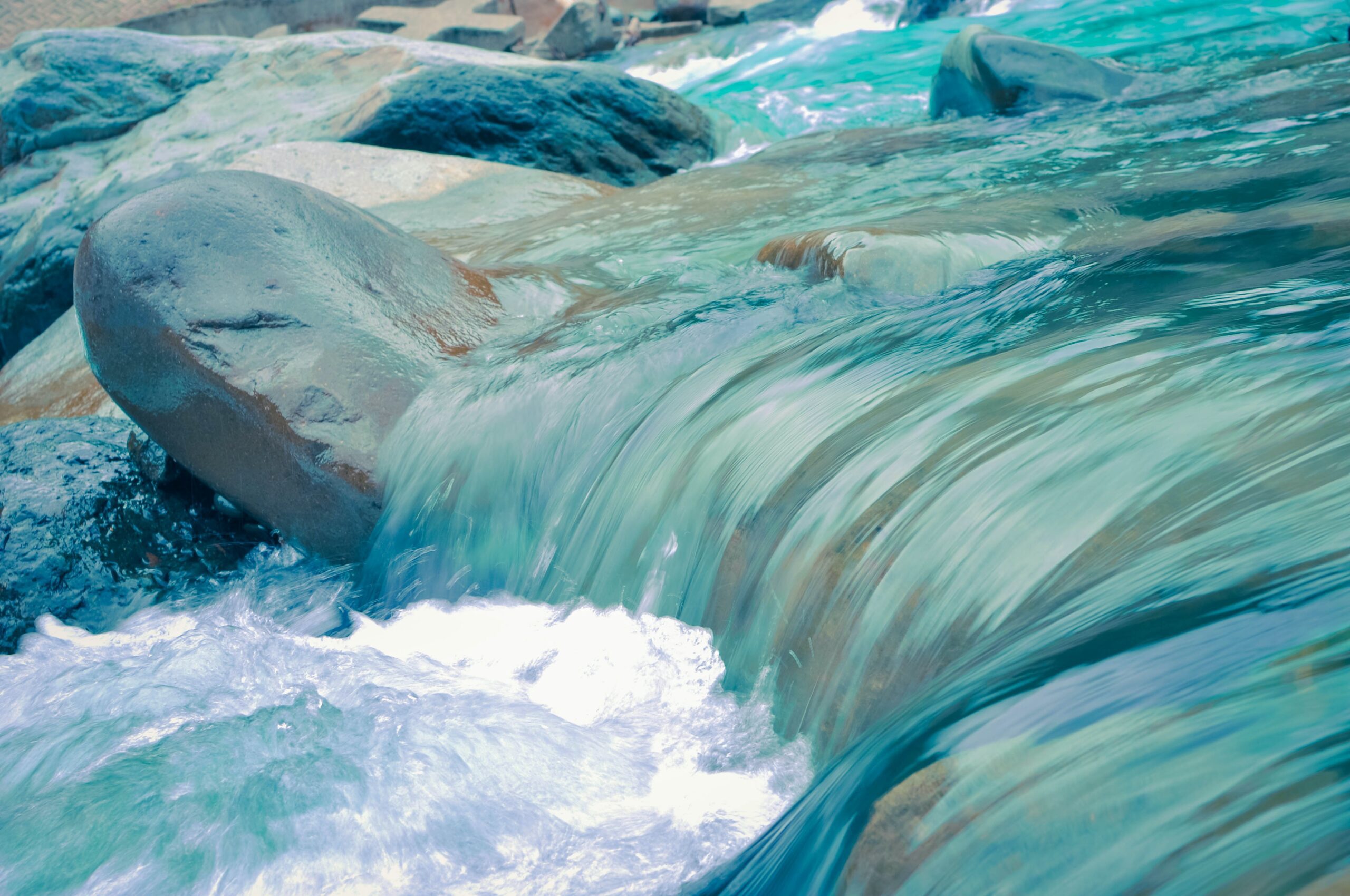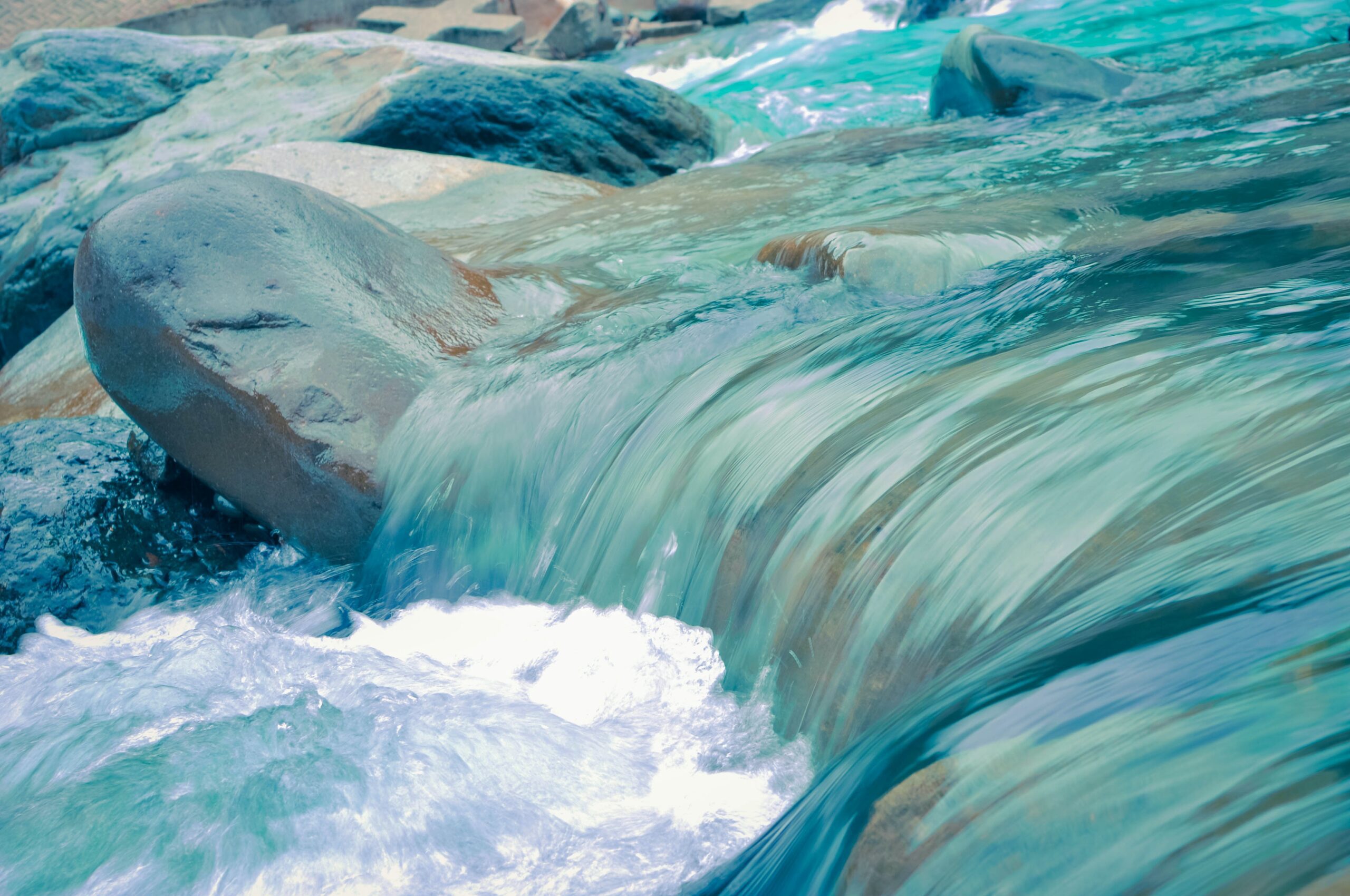If you are a well owner who is concerned about the temperature regulation of your well water, you may be wondering if there are any helpful resources available to address your concerns. Luckily, there are various sources of information and assistance that can provide guidance on this matter. From online forums where well owners share their experiences and advice, to local water authorities who can provide expert guidance, there are resources out there to help you navigate the complexities of well water temperature regulation. By accessing these resources, you can gain a better understanding of the factors affecting your well water’s temperature and take the necessary steps to ensure its regulation.
Understanding the Importance of Well Water Temperature Regulation
Why is well water temperature regulation important?
Well water temperature regulation is crucial for maintaining the quality and safety of the water you and your family rely on. Temperature plays a significant role in the overall health of your well system, affecting not only the water quality but also the efficiency and longevity of your equipment. By understanding the importance of well water temperature regulation, you can take proactive measures to ensure the best possible water supply for your household.
The impact of temperature on well water quality
Temperature directly influences the chemical and biological processes occurring within your well, affecting the overall quality of the water. High temperatures can promote the growth of bacteria and other microorganisms, leading to the contamination of your water supply. Additionally, extreme temperature fluctuations can cause minerals and sediments to dissolve or precipitate, altering the taste, odor, and appearance of your well water. By regulating the temperature, you can minimize the risk of bacterial growth and maintain optimal water quality.
Health risks associated with unregulated well water temperature
Unregulated well water temperature can pose several health risks to you and your loved ones. Bacteria, such as E. coli and coliforms, thrive in warmer temperatures and can cause severe gastrointestinal illnesses if ingested. Temperature fluctuations can also affect the concentration of harmful elements like lead and arsenic in your water, further jeopardizing your health. By ensuring proper temperature regulation, you can reduce the likelihood of waterborne diseases and safeguard your family’s well-being.
Factors Affecting Well Water Temperature
Geographical location and climate
The geographical location and climate of your area significantly influence the temperature of your well water. Regions with colder climates tend to have cooler groundwater, while warmer climates result in higher temperatures. Understanding your area’s seasonal temperature patterns can help you anticipate temperature fluctuations and implement necessary measures to regulate your well water temperature effectively.
Depth of the well
The depth of your well plays a role in determining the temperature of the water. Deeper wells tend to have cooler water due to the insulating properties of the earth. Shallower wells, on the other hand, are more susceptible to temperature variations, especially influenced by surface heat sources like the sun. Monitoring the depth of your well and its impact on water temperature can help you develop appropriate strategies for regulation.
Aquifer characteristics
The characteristics of the aquifer supplying your well water can also affect its temperature. Aquifers with high levels of groundwater flow tend to have more consistent temperatures, while stagnant or slow-flowing aquifers may exhibit greater temperature fluctuations. Considering the geology and hydrodynamics of your aquifer can provide insights into temperature variations and guide your efforts to regulate the water temperature consistently.
Presence of nearby water sources
The presence of nearby water sources, such as rivers, lakes, or underground springs, can influence the temperature of your well water. Coldwater inputs from these sources can lower the temperature of your well water, while warmer water inputs can raise the temperature. Understanding the proximity and characteristics of these water sources can help you assess the potential impact on your well’s temperature and take appropriate measures to regulate it.
Methods for Monitoring Well Water Temperature
Manual temperature measurements
Regular manual temperature measurements are a simple yet effective way to monitor the temperature of your well water. Using a thermometer specifically designed for well water temperature measurements, you can collect data at various intervals and assess the trends and variations. This method allows you to track any abnormal temperature changes, providing early warning signs of potential issues that require further attention.
Installing temperature sensors
Installing temperature sensors within your well system can provide continuous and automated temperature monitoring. These sensors are designed to record the temperature at regular intervals and transmit the data to a central monitoring device. This real-time monitoring allows you to identify temperature fluctuations promptly and take immediate corrective actions to regulate the well water temperature.
Remote monitoring systems
Remote monitoring systems integrate temperature sensors with advanced technology to provide comprehensive and convenient well water temperature monitoring. With these systems, you can remotely access temperature data through a mobile app or a web-based platform. This feature enables you to stay informed about your well’s temperature status regardless of your location, ensuring timely response and intervention if necessary.
Maintaining Optimal Well Water Temperature
Insulating the well and surrounding area
Insulating your well and its surrounding area is a practical method to maintain optimal well water temperature. Insulation materials, such as foam insulation or well caps, can help minimize temperature fluctuations caused by external factors like air temperature and sunlight exposure. By providing a barrier between your well and its environment, insulation helps retain the desired temperature, reducing the risk of contamination and maintaining water quality.
Using heat exchange systems
Heat exchange systems, such as heat exchangers, can regulate the temperature of your well water by transferring thermal energy between the groundwater and an external source. In colder months, heat exchangers can use the Earth’s geothermal energy to warm the water, while in warmer months, they can extract heat to cool the water. These systems provide a sustainable approach to maintaining optimal temperature throughout the year.
Aquifer recharge techniques
Aquifer recharge techniques involve replenishing the groundwater supply to regulate the temperature of your well water. By injecting cooler water into the aquifer during warmer periods or warmer water during colder periods, you can offset temperature fluctuations. These techniques aim to maintain a more stable groundwater temperature, consequently regulating the temperature of your well water.

Professional Assistance for Well Owners
Consulting with a well professional
Seeking guidance from a qualified well professional can provide valuable insights and recommendations regarding your well water temperature regulation. Well professionals, such as hydrogeologists, drillers, and pump technicians, possess the expertise to assess your specific situation and offer customized solutions. They can analyze your well system, evaluate temperature-related risks, and provide you with expert advice on maintaining optimal temperature conditions.
Hiring a geothermal specialist
Geothermal specialists specialize in harnessing the Earth’s natural heat to regulate well water temperature. These professionals can evaluate the feasibility of geothermal heat pump systems in your area and guide you on their installation and operation. By utilizing geothermal energy, which remains relatively constant throughout the year, you can achieve efficient and eco-friendly temperature control for your well water.
Working with a water treatment company
Water treatment companies can offer comprehensive solutions for well water temperature regulation. These companies assess your water quality, including its temperature, and design customized treatment systems to maintain the desired temperature. Whether through heat exchange technologies, insulation, or other methods, their expertise ensures effective temperature regulation, enhancing the safety and quality of your well water.
Organizations and Associations
National Ground Water Association (NGWA)
The National Ground Water Association (NGWA) is a nonprofit organization dedicated to advancing the groundwater industry and protecting the quality of groundwater resources. As a well owner concerned about well water temperature regulation, you can benefit from the NGWA’s resources, educational materials, and professional network. They provide valuable information, guidelines, and research related to groundwater temperature and its management.
Water Systems Council (WSC)
The Water Systems Council (WSC) represents and advocates for small water well system providers and well owners. The council offers useful resources, including educational materials, technical assistance, and access to local well professionals. As a well owner, you can turn to the WSC for guidance on well water temperature regulation and connecting with industry experts.
American Ground Water Trust (AGWT)
The American Ground Water Trust (AGWT) promotes responsible and sustainable groundwater management through education and outreach. Their resources cover various aspects of well ownership, including temperature regulation. AGWT provides educational seminars, conferences, and publications that can expand your knowledge and assist you in effectively managing your well water temperature.
Well Water Collaborative (WWC)
The Well Water Collaborative (WWC) is an organization dedicated to supporting and assisting well owners in the United States. The collaborative connects well owners with resources, experts, and other well owners, fostering collaboration and knowledge sharing. Through the WWC, you can access information and join discussions related to well water temperature regulation, benefiting from the collective experiences and insights of fellow well owners.

Government Agencies and Resources
Environmental Protection Agency (EPA)
The Environmental Protection Agency (EPA) is responsible for protecting human health and the environment. The EPA provides resources and guidelines related to water quality, including information on well water temperature regulation. Their website offers educational materials, publications, and access to online tools that can help you better understand the importance of temperature regulation and find specific recommendations for your well system.
Department of Natural Resources (DNR)
State-specific Department of Natural Resources (DNR) agencies often oversee the regulation and management of groundwater resources. These agencies can provide information, assistance, and regulatory guidelines concerning well water temperature regulation. Contact your local DNR to access state-specific resources and support tailored to your area’s unique geological and hydrological characteristics.
Centers for Disease Control and Prevention (CDC)
The Centers for Disease Control and Prevention (CDC) offers comprehensive resources on various aspects of water quality and safety, including well water temperature. Their website provides information on potential health risks associated with unregulated well water temperature and guidelines for maintaining safe water conditions. The CDC’s guidance can help you navigate potential health concerns and implement appropriate measures to safeguard your well water.
State-specific well water regulation agencies
Many states have dedicated agencies responsible for overseeing well water quality regulations. These agencies often provide resources, recommendations, and educational materials pertaining to well water temperature regulation. Search for your state’s well water regulation agency to access state-specific guidelines and assistance tailored to your location and specific needs.
Online Communities and Forums
Well owner forums and discussion boards
Various online forums and discussion boards cater specifically to well owners, providing a platform to connect, communicate, and share experiences. Participating in these communities allows you to interact with other well owners who may have faced similar challenges in regulating well water temperature. Learning from their experiences, exchanging advice, and seeking suggestions can contribute to your understanding and proficiency in managing your well system.
Social media groups for well owners
Social media platforms, such as Facebook and Reddit, host numerous groups and communities dedicated to well owners. Joining these groups can provide you with a vast network of well owners who can offer insights, share resources, and address your concerns related to well water temperature regulation. Engaging with these social media communities can provide valuable real-life experiences and recommendations.
Online resources for sharing experiences and advice
Several websites and online platforms allow well owners to share their experiences, advice, and tips on various aspects of well ownership, including temperature regulation. These resources often include blogs, articles, and user-submitted content that can offer practical guidance and innovative solutions. Exploring and contributing to these online resources can provide you with valuable insights and empower you to effectively manage your well water temperature.
Educational Materials and Publications
Books and guides on well ownership and maintenance
Numerous books and guides are available that cover all aspects of well ownership, maintenance, and regulation. These publications often include sections on temperature control and offer step-by-step instructions, illustrations, and troubleshooting tips. By referring to these educational materials, you can expand your knowledge, gain practical insights, and become better equipped to manage your well water temperature effectively.
Research articles and scientific publications
Scientific research articles and publications serve as valuable references for understanding the technical aspects of well water temperature regulation. These resources delve into the complexities of groundwater dynamics, thermal exchange systems, and the impact of temperature on water quality. Accessing reputable scientific journals and research databases allows you to deepen your understanding and stay informed about the latest advancements in well water temperature regulation.
Educational videos and webinars
Educational videos and webinars provide engaging and visual platforms for learning about well water temperature regulation. Many organizations, associations, and well professionals produce informative content covering a wide range of topics. These educational resources often provide demonstrations, case studies, and expert advice, allowing you to grasp the concepts and techniques associated with temperature regulation more effectively.
Well Water Temperature Regulation Technologies
Water heaters and chillers for well systems
Installing water heaters and chillers specifically designed for well systems can help regulate the temperature of your well water. Water heaters raise the temperature of the water, ensuring it remains warm and comfortable during cold periods. Chillers, on the other hand, cool the water, preventing temperature spikes during warmer seasons. These temperature regulation technologies support comfort and convenience while maintaining the desired water temperature.
Thermal exchange systems
Thermal exchange systems utilize the Earth’s natural heat or cold to regulate your well water temperature efficiently. Geothermal heat pumps, for example, can extract heat from the ground during winter and transfer it to your well water, raising its temperature. In the summer, these systems work in reverse, extracting heat from the water and transferring it back to the ground, thus cooling the water. By harnessing the Earth’s thermal energy, thermal exchange systems provide sustainable and effective temperature control.
Geothermal heat pumps
Geothermal heat pumps are advanced systems that use the constant temperature of the Earth to regulate your well water temperature. These pumps employ a network of pipes buried underground to transfer heat between the water and the Earth. By utilizing geothermal energy, geothermal heat pumps can ensure a stable well water temperature throughout the year, offering energy-efficient and eco-friendly temperature regulation.
In conclusion, well water temperature regulation is of paramount importance for maintaining water quality, preventing health risks, and optimizing the performance of your well system. By considering factors like geographical location, well depth, aquifer characteristics, and surrounding water sources, you can understand the elements that impact your well water temperature. Monitoring methods like manual measurements, temperature sensors, and remote monitoring systems enable you to stay vigilant and responsive to potential temperature fluctuations. Optimal temperature maintenance can be achieved through insulation, heat exchange systems, and aquifer recharge techniques. Seeking professional assistance from well experts, geothermal specialists, and water treatment companies can enhance your well water temperature regulation efforts. Engaging with organizations, government agencies, online communities, and educational resources empowers you with knowledge, support, and valuable insights. Finally, utilizing temperature regulation technologies, such as water heaters, chillers, thermal exchange systems, and geothermal heat pumps, ensures consistent and efficient control of your well water temperature. With a comprehensive approach, well owners can prioritize the well-being and satisfaction of their families by ensuring reliable and high-quality well water through effective temperature regulation.


